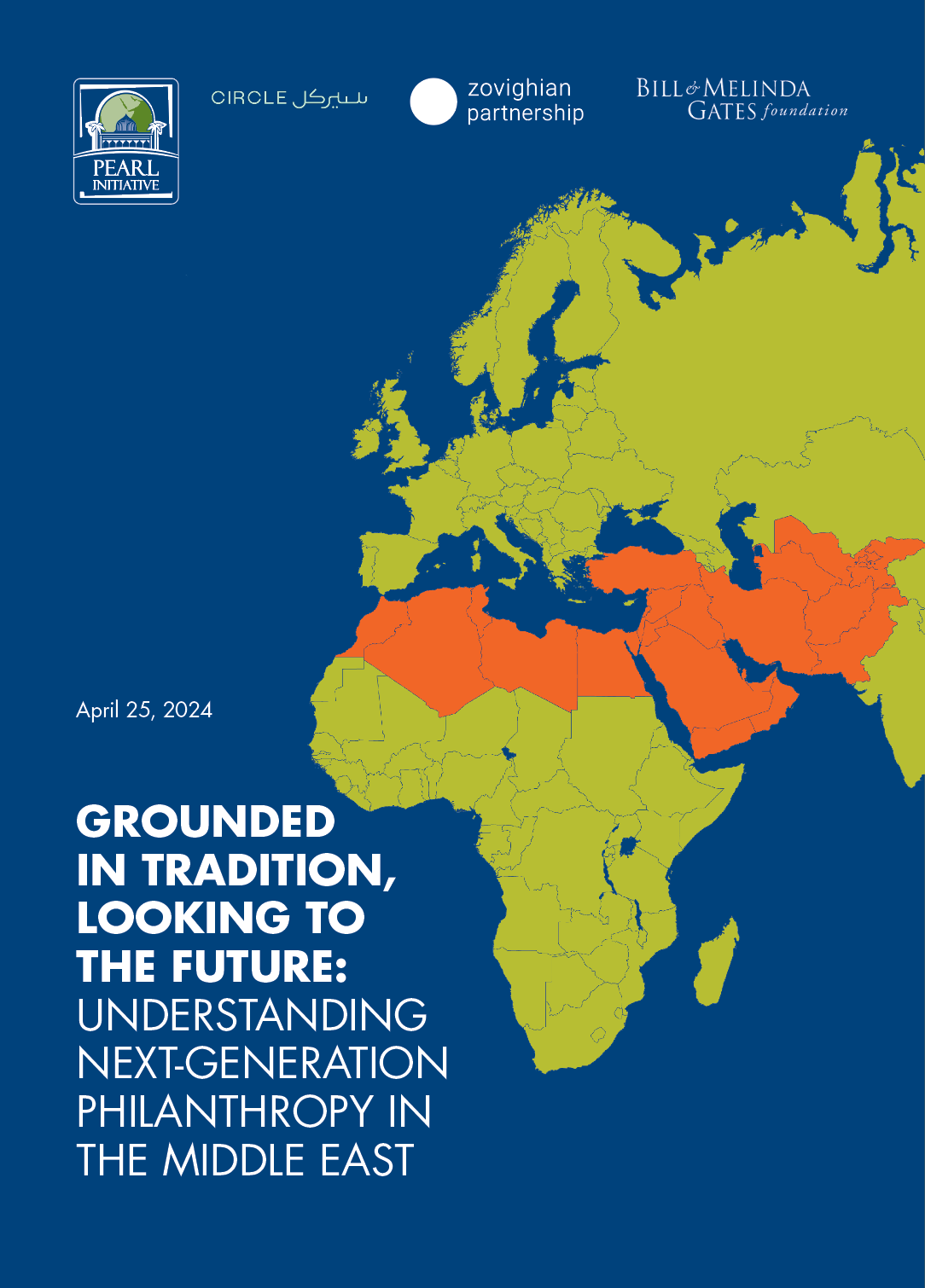- Research conducted by the Pearl Initiative and Zovighian Partnership in partnership with the Bill & Melinda Gates Foundation sheds light on challenges and opportunities for next generation philanthropy in the Middle East
- Research finds over 20% of respondents give over US$1,000,000 annually
- 80% engage in their philanthropy on a personal level, moving away from their family foundations and businesses
Dubai, UAE: April 26, 2024: A report titled “Grounded in Tradition, Looking to the Future: Understanding Next-Generation Philanthropy in the Middle East” was recently launched during an exclusive event in the UAE, which revealed that an individual-driven approach to philanthropy, centred on non-traditional giving methods, is gaining traction among next-generation philanthropists in the Middle East. This trend is superseding the traditional family foundations-based approach.
Following six months of pioneering research with next-generation philanthropists in the Middle East, the Pearl Initiative, a business-led non-profit organization focused on promoting corporate governance and accountability in the Gulf region, in collaboration with the Zovighian Partnership, a regional research and social investment platform, and the Bill & Melinda Gates Foundation have discovered that these philanthropists in the region are allocating an average of US$100,000 annually towards high-impact initiatives in education, healthcare and women’s empowerment. The survey also highlighted that almost 20% of respondents contribute over US$1,000,000 annually.
The comprehensive study sheds light on new trends, challenges, and opportunities for giving that are shaping next-generation philanthropy in the region. This initiative aims to fill the gaps in data to help mitigate the risks and challenges in regional philanthropy. Over 80 emerging and established next-generation philanthropists from the region participated in the inaugural quantitative survey, aimed at supporting and empowering the giving community in the Middle East.
The research findings come against the backdrop of an upcoming US$1 trillion wealth transfer in the region by 2030. With this research, the collaborators hope to enable more effective decision-making amongst funders who are having to make more complex and strategic philanthropic decisions.
Badr Jafar, Founder of the Pearl Initiative and CEO of Crescent Enterprises, said: “Data and research are crucial elements that enhance the impact of philanthropy. This is especially urgent considering the next generation of donors is transforming the practice of philanthropy by demanding more hands-on approaches, with a growing emphasis on accountability and transparency. This research project supports the creation of a comprehensive repository of data around philanthropy in the Arab world and other high growth markets, highlighting the potential for donors to adopt more courageous and impactful approaches to giving.”
With 80 percent of next-generation philanthropists moving away from their family foundations and businesses, over 45 percent are employing non-traditional giving methods such as impact investing, microlending, and donor-advised funds, says the study. Female philanthropists are significantly more likely to invest in women and girls, which could lead to increased efforts to support the economic inclusion of women. Furthermore, nearly 60 percent of respondents believe that direct funding is the most effective giving strategy.
Robert Rosen, Director of Philanthropic Partnerships at the Bill & Melinda Gates Foundation, said: “We are pleased that Pearl Initiative and the Zovighian Partnership have collaborated on this important study. The insights garnered from the next generation of philanthropists in the MENA region, who have emerged as one of the major growth drivers for the sector, holds great significance and potential to better understand the landscape of giving, and unlock transformative and enduring positive social impact.
Governance and accountability are key priorities among next-generation philanthropists. Nearly 50 percent of respondents believe they are supported by well-established governance frameworks for their giving and over 70 percent exhibit a strong commitment to self-accountability.
The report also highlights that over 65 percent of next-generation givers are dissatisfied with the available ecosystem of support for philanthropic giving. However, over 65 percent of next-generation philanthropists hold a positive perception of the impact of philanthropy in the Middle East over the next five years.
Lynn Zovighian, Founder of the Zovighian Partnership, and co-author and co-funder of the research project and report said: “It was so important to deliver this first-time research for our philanthropic community. I am immensely grateful for the support and keen collaboration of many of our peers and fellow changemakers.”
Survey respondents predominantly hail from the Gulf Cooperation Council (GCC) countries, Levant and Egypt. Over 80 percent of the participants hold leadership positions, around 50 percent are between the ages of 35-44, and 65 percent are women. With the launch of the survey findings, the Pearl Initiative and Zovighian Partnership will translate the research insights into actionable strategies and initiatives to drive positive change and innovation in the region.








